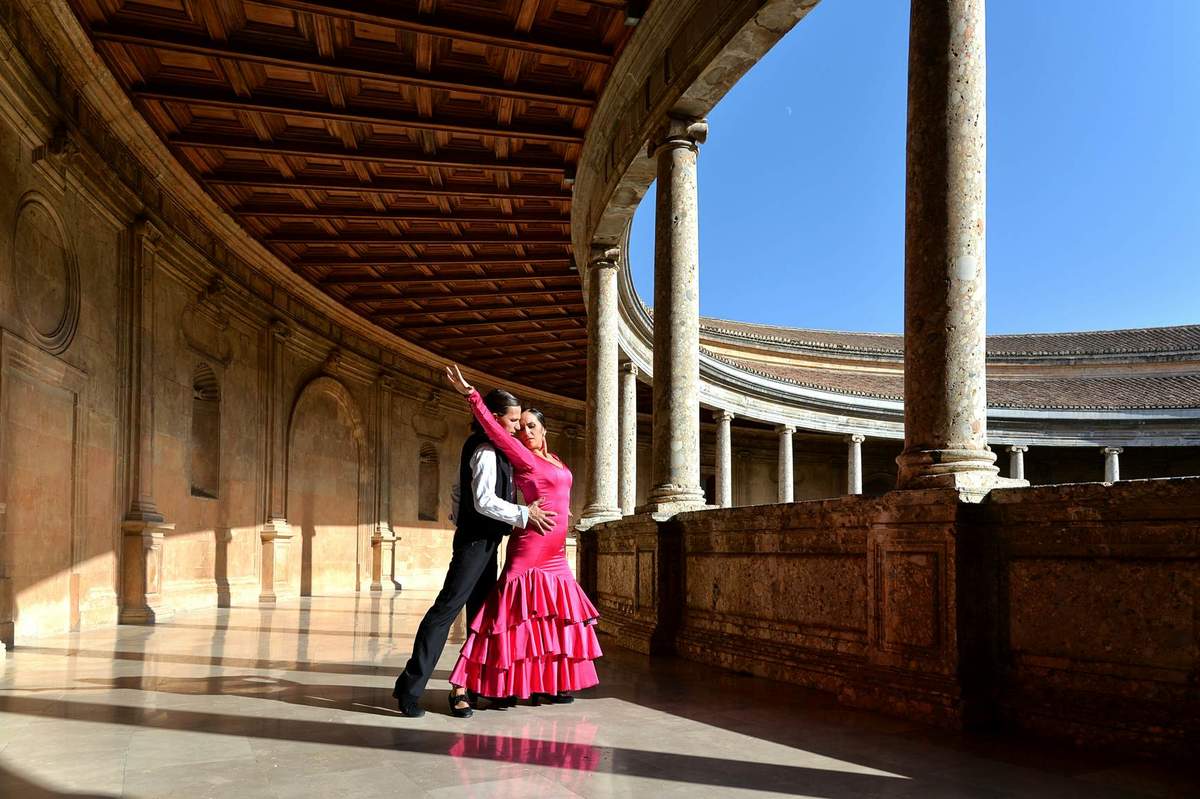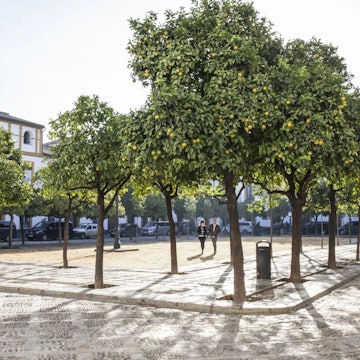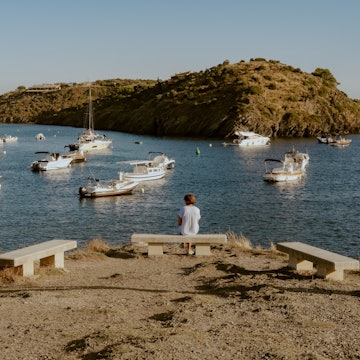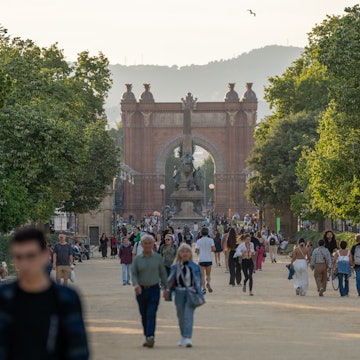

The Basílica de Santa María la Real de Covadonga in Covadonga, Spain. James Jackman for Lonely Planet
Spain consistently ranks as one of the most-visited destinations in the world. This vibrant and multifaceted European country has attractions that resonate with every kind of traveler.
Culture enthusiasts seeking to immerse themselves in art and architecture or Madrid's best museums and sun worshippers looking for spectacular beaches and islands will find something here. Passionate gourmands embarking on a culinary tour or even spiritual adventurers wishing to retrace the footsteps of medieval pilgrims will be attracted, too.
Before packing your bags, consider what you’re looking for in a visit to Spain and plan ahead. Are you traveling on a shoestring budget, or are you happy to splurge on shopping? Are you looking for the best time to soak up the sun on a sandy coastline?
Whatever draws you to Spain, here are the best times to visit this fascinating Iberian destination.

January to March are the best months for skiing
Weather in Spain in winter: In January and February, temperatures range from -1°C to 10°C (30°F to 50°F) and 2°C to 13°C (35°F to 55°F). In March, that edges up to 10°C to 18°C (50°F to 65°F). Be prepared for frequent rain in the north in January.
For fans of the great outdoors, Spain's ski resorts usually open in December and close right after Easter in April. Peak snow conditions run from January to March in the Pyrenees, and January to February in Central Spain. Surprisingly, the Sierra Nevada mountains near Granada in southern Spain have a longer ski season that can sometimes last until May.
January to February and July to August are the best times to shop the sales
The traditional rebajas (sales) periods in Spain are regulated by the Spanish government to protect consumers and local businesses. These are usually held after Christmas and during summer holidays, when people have time to shop. During these winter and summer sales seasons, bargain hunters can stretch their shopping budget, as stores use this time to clear their inventory, offering significant discounts of up to 70% off normal prices.

April to May and September to October are perfect for spending time outdoors
Weather in Spain in spring and fall: April temperatures range from 13°C to 21°C (55°F to 70°F), and May temperatures range from 16°C to 24°C (60°F to 75°F). In September and October, temps range from 21°C to 27°C (70°F to 80°F) and from 16°C to 24°C (60°F and 75°F).
In central Spain and on the Mediterranean coast, the spring and fall seasons are marked by sunlit days and pleasant weather that is perfect for strolling and outdoor dining at restaurant and bar terrazas (terraces), with temperatures dropping by nightfall.
Spring and fall are also the best seasons for hiking in the Spanish Pyrenees, the Picos de Europa and the Sierra Nevada mountains, and in the volcanic hinterlands of the Canary Islands. These cooler months are also great times to explore the tangled streets of Spain's historic cities, towns and villages on foot.
April to May and September to October are best for walking the Camino de Santiago pilgrimage
The most popular period for walking this thousand-year-old pilgrimage route toward Santiago de Compostela is between May and September, for favorable weather and longer daylight hours. However, we recommend hiking during the spring and autumn shoulder seasons when trails are less crowded, offering a more tranquil and contemplative experience.

May to September is the best time for the beach
Weather in Spain in summer: The summer months of July to August can be scorching, with temperatures in central and southern Spain exceeding 40°C (104°F).
Spain is blessed with nearly 5000km (3107 miles) of coastline, stretching from the Atlantic Ocean to the Mediterranean Sea. Archipelagos in the Balearic Sea and off the northwestern coast of Africa cap off the country’s maritime allure.
When the weather starts warming up in the wake of spring, Spanish beach destinations come to life, hitting their peak in August. Ibiza reaches its full party atmosphere in July and August, when top DJs fly in to play in its world-famous clubs. If you wish to avoid crowded shorelines, try to visit in May and June before the high season crowds gather.
Madrid empties out in August, as locals go on summer holidays and many establishments close to avoid the oppressive heat. July and August are ideal for visiting the northern regions, such as Asturias, the Basque Country, Galicia, and Cantabria, which have milder temperatures.

June to August is the best time for attending music festivals
Many of the country’s biggest music festivals take place in the summer months. A diverse lineup of international acts gather at venues and outdoor stages across Spain to perform in annual festivals such as Primavera Sound and Sónar in Barcelona (June), Mad Cool in Madrid and Bilbao BBK Live in Bilbao (July), and Rototom Sunsplash reggae festival in Benicàssim near Valencia (August).
September to October is the best time for enjoying wine-harvest festivals
Oenophiles will enjoy visiting Spain’s most famous wine-making regions, such as La Rioja and Ribera del Duero, during the traditional harvest season that starts in September. Around September 21, Logroño, the capital of La Rioja, kicks off its San Mateo festival, where you can take part in grape-crushing, parades and, of course, exquisite wine tasting for astoundingly low prices per copa (cup).
For an off-the-tourist-radar experience, visit Valdepeñas in the Castilla-La Mancha region during the first week of September, when the entire town takes its love of vino to a whole new level with the annual harvest festival, featuring a wine tunnel and wine-tasting events in subterranean bodegas (wineries). There’s even a wine bus to take you home after a whole day of Dionysus worship.
November to February is the best time for budget travelers
Prices are generally lower for accommodations and flights during the winter months. The cold season is actually a great time to bundle up and visit Madrid and Barcelona, which come alive with Christmas lights, outdoor markets and holiday festivities.
















